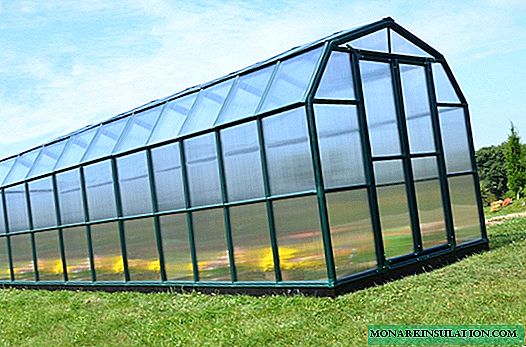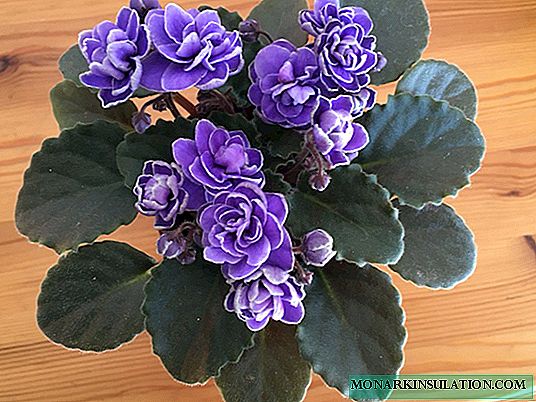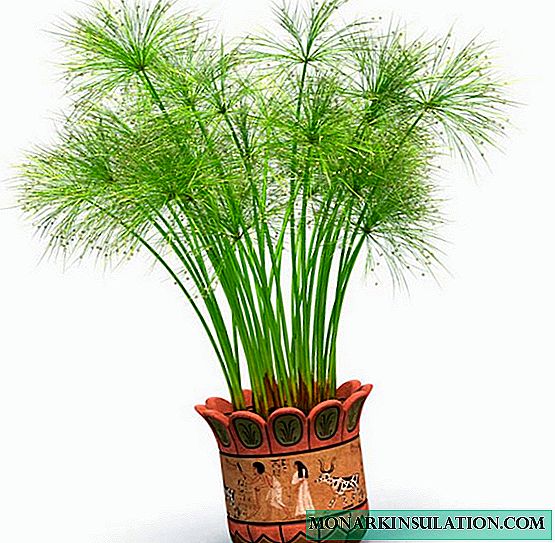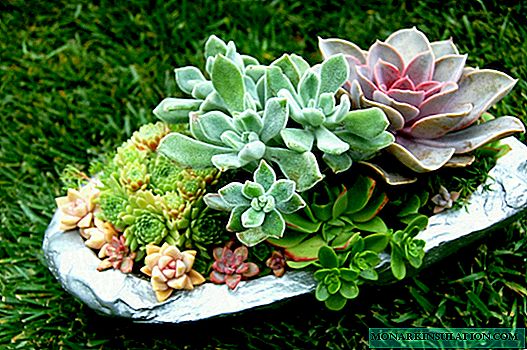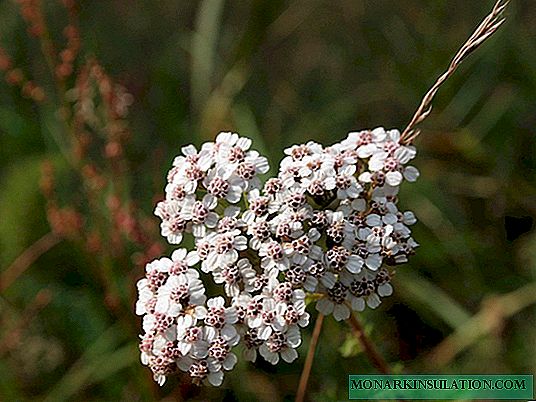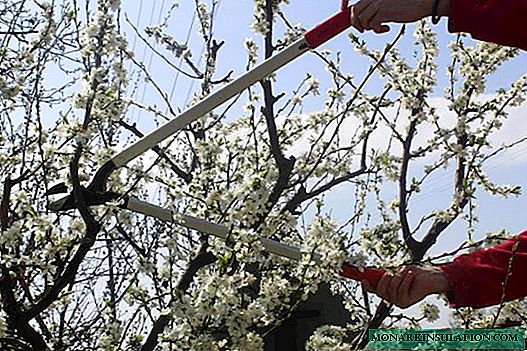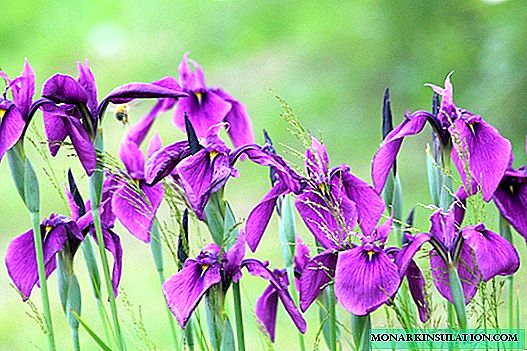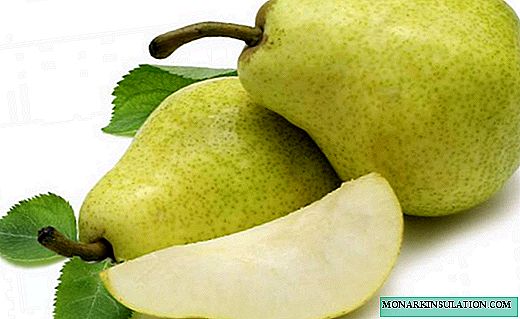Pelargonium, or as it is popularly called - geranium, a common indoor and garden plant, characterized by unpretentiousness and ease of care. At the same time, the flower pleases with the beauty of the flowers and the delicate aroma of the leaves. The popularity is due to the fact that the reproduction of geraniums is not difficult to carry out at home.
Features of the reproduction of geraniums at home
The opinions of gardeners were divided on when it is better to propagate the plant. It all depends on the chosen method. In one, experts agree: the best period is spring or autumn.
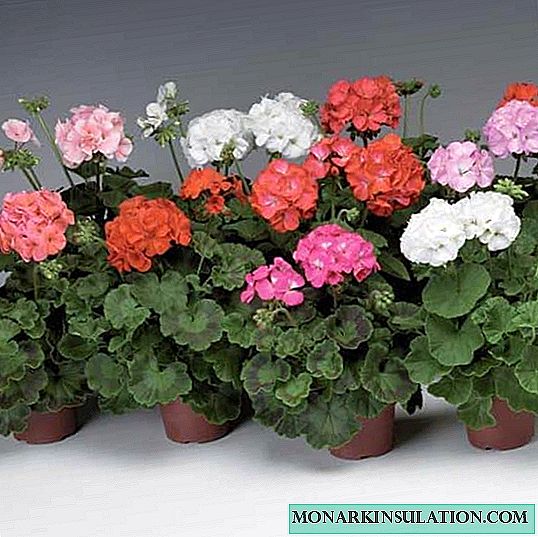
Composition of varieties of geraniums
Note! For pelargonium, the most favorable time for grafting is in the fall (late August - early September). This is due to the fact that pruning a plant after flowering gives good strong cuttings.
If the purpose of breeding geraniums is rapid flowering, then start reproduction in March. Then in July it will be possible to get lush buds on a young flower. The survival rate of spring plantings is 90%. It is more correct to start pruning cuttings in September, then the flower will grow and develop intensively, flowering will begin next year. The percentage of survival of planting in this period is 80-90%.
The most unfavorable period of propagation of geraniums is the middle of summer, in which case the percentage of plants that have taken root is minimal. It is optimal to start sowing seeds in March, when there is already enough sunlight. If you plant seeds earlier - the gardener should provide crops with an additional light source.
Geranium can be propagated using a leaf at any time of the year. The method is relevant in cases where it is impossible to obtain a stalk. Working with royal pelargonium or ampelous (ivy) is more difficult than with regular.
How to propagate royal geranium cuttings at home
One of the most beautiful types of geraniums is the royal pelargonium. Breeders have bred a large number of varieties of royal and ivy pelargonium, but all of them are more demanding in the care and reproduction compared to other species. To know how to propagate royal geranium cuttings at home, you need to follow the step-by-step scheme that experienced flower growers use.

What does a geranium stalk look like
It's important to know! The main requirement for the propagation of royal pelargonium is to prevent excess moisture in the soil or substrate. With excessive moisture, the shoots of the plant will begin to rot and disappear.
How to cut geranium from a mother plant
To obtain new plants of royal geranium, it is better to propagate by cuttings from late August to early September. Since pruning occurs after flowering, propagation cuttings will be strong and healthy.
In the spring, the plant wakes up from hibernation. All vital processes begin to activate, and if you choose the right time, you can enjoy the lush flowering in June. The opposite result may occur, and then flowering will come only after a year. How is geranium propagated?
Propagation of geraniums should be carried out from a healthy and strong-looking mother plant. The average length of the stalk is 8-20 cm, depending on the size of the original flower. Shoots, on which there are more than 5-6 leaves, are not recommended to be taken because of the low probability that the stem will give roots.
Additional Information! The cuttings are separated from the mother's shoot with a sharp knife below the knot at a slight angle. After that, the lower leaves on the handle are removed. If the stalk has too large upper leaves, then they must be cut off in half so that all the forces of the future plant do not go to the nutrition of the leaves, but go to the formation of the root system.
Rooting methods
There are several ways how to root geranium from the received cuttings:
- using plain water;
- landing in light soil;
- apply a specialized peat tablet.
Each method has its own characteristics, and the success of any method depends on the technology of obtaining the mother bush. When choosing a similar scheme, the chances of a positive result increase, and rooting is faster.
Obtaining roots using ordinary water involves replacing the fluid every 2-3 days. An opaque container is filled with water no more than 3-5 cm and placed on a well-lit window. After the appearance of roots, cuttings are planted in temporary pots with rich soil.
Using the method of planting in light soil, planting material is pre-dried for about 2 hours, the places of cuts are treated with charcoal and planted in the ground, without waiting for the roots to appear.
On a note! A pot for rooting is chosen of a small diameter, the lower part is filled with drainage, the rest of the tank is filled with a substrate of peat and sand in equal volumes.
The best way to vegetatively propagate royal pelargonium is considered rooting with the help of peat tablets. This method does not involve planting shoots in the ground, but is based on the use of a special environment from peat and nutrients. Such a substrate promotes the rapid growth of plant roots. The probability of stem rotting is minimized, but before putting the shoot into a peat pellet, it is kept for 5-15 days in water until the first roots appear. When the roots completely braid the tablet, immediately begin to plant them in a spacious pot.

Peat tablets for rooting geranium cuttings
Landing and further care
Cuttings of royal geraniums are popular because of the rapid rooting, subject to all the rules of this procedure. After the root system is formed, the first sprouts begin to appear on the cuttings within 3-4 weeks, at which time watering is increased.
Note! Water the plant carefully, do not zealous with moisture. King geraniums tolerate drought better than excess moisture.
Increased watering does not mean that the flower is ready for full care as an adult plant. It is necessary to wait another month before starting to gradually temper the flower in the sun. After a while, the plant is transferred to an adult care regimen.
A transplant into a permanent soil is carried out only after the formation of a strong root system. If you do the transplant earlier, there is a chance that the plants will not take root. The soil is prepared from compost (humus, sand, sheet and turf soil in equal proportions).
In the cold season, the flower is at rest. Winter cultivation takes place at a temperature of +15 ℃. If it is impossible to create such conditions, the plant is left at rest until March. The shoots are shortened, the roots are cleaned of soil and cut, wrapped in newspaper or film and then suspended in the basement.

Planting cuttings in the ground
How to propagate geranium sprouts at home
Diluting geraniums with pruning is easy. To do this, leave a stump of a given height, and make a large number of circular cuts through one kidney on the residual shoot under the kidney itself. Repeat the procedure to the very top.
As a result, a large number of cuttings are formed from incisions, which develop their root system directly on the mother plant. After the young shoots have grown stronger and the root system has become quite powerful, the plants can be planted, the cuttings obtained in this way will take root quickly.
Additional Information! If problems arise with the rooting of the processes, the appearance of future roots is stimulated. For this, special means are used according to the instructions in order to help the geranium multiply with the help of incisions on the shoot of the mother plant.
How to propagate geranium leaf at home
In some cases, it happens that a healthy strong stalk cannot be bred. In such cases, a plant leaf is used. The leaf itself cannot root, it can be helped. To do this, leave part of the stem along with the leaf. After cutting the stem with the leaf, the processing is carried out as when grafting. Soil preparation follows the same principle as with conventional cuttings. Next, a transparent cup is filled with substrate, in which you need to plant a stump with a leaf. The scheme for caring for such seedlings is identical to that for caring for cuttings.

Leaf propagation
Seed propagation
Propagation by seeds is another way to obtain a large number of plants. It has a significant drawback - plants grow from seeds that differ in characteristics from the mother. The color of the flowers is lost, their shape, terry. If the main task is quick gardening, then propagating by seeds is an excellent option. In this case, they use seeds collected from their flowers. To create specific color arrangements, seeds are bought at a flower shop.
Note! Geranium seeds are planted mainly in those cases when it comes to a large number of plants at once, for example, to decorate city parks and flower beds. Cuttings for such volumes are not suitable.
Before planting, they prepare their own seeds - carry out scarification. The pelargonium seed coat is very dense and hard, which is why they can lie in the soil for 3 months before germinating.
The technology of scarification consists in gentle grinding of seeds between two sheets of fine-grained sandpaper. When sowing geranium seeds, factors are considered:
- the correct time for sowing seeds (you can start planting from late December or early January);
- the dependence of the temperature regime and the time of germination (the temperature of the substrate should be maintained within 18-20 ℃ above zero);
- substrate (turf land, sand and peat in a ratio of 2: 1: 1);
- proper picking and sprout care.
Do not drag out the pick, otherwise the root system will grow and intertwine. Seedling development will be delayed. After the sixth leaf appears on young plants, they are pinched and formed so that in the future, geranium grown from seeds at home will please lush flowering.

Growing pelargonium from seeds
What difficulties can you face?
Propagation of geraniums at home is not difficult, but it is still worth remembering some aspects. Pelargonium is sometimes affected by diseases and pests. The main problems with growing geraniums:
- Yellowing of the lower leaves with a lack of moisture.
- Redness of the edges of the leaves when the plant freezes.
- Darkening of the shoot at the base with a black leg. Unfortunately, such a plant cannot be reanimated.
- Stalk exposure with a lack of light.
- Appearance of gray mold on leaves with excessive moisture.

Home-grown geranium
To plant geraniums at home is not difficult, the main thing is to choose the right time, choose a more convenient method of reproduction and the right substrate. In this case, you can grow a real beauty on the windowsill, which will be a true decoration of the house.

